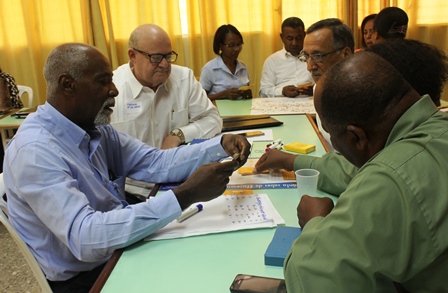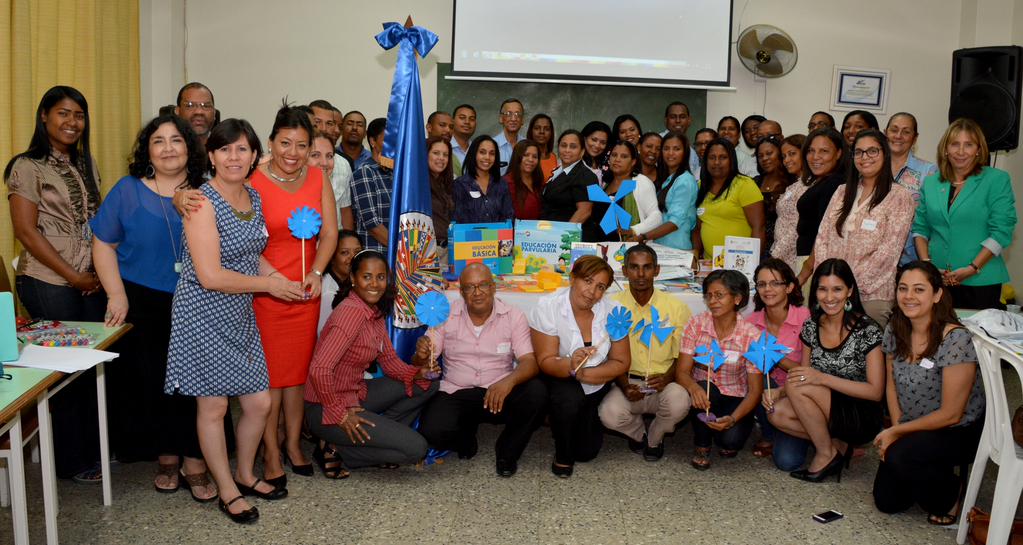
A recent workshop held in the Dominican Republic brought together teachers, Ministry of Education staff, and other participants to talk about how to give students a better grounding in subjects related to energy and the environment. The event—“Energy Education and Awareness for a Sustainable Future”—was part of ECPA’s Sustainable Energy Capacity-Building Initiative (SECBI) for the Caribbean Region.
The workshop, which took place August 4-6 in Santo Domingo, was co-sponsored by the country’s National Institute for the Education and Training of Teachers (INAFOCAM). The OAS Department of Sustainable Development provided training on content and best practices for teaching environmental issues, using instructional materials it developed through its “Learn and Save” program.
 Participants included teachers from 45 schools in five districts of the country, as well as regional and district staff from the Ministry of Education, representatives of several other government departments and agencies, and the Fundación Sur Futuro. Experts from Chile and Mexico gave presentations.
Participants included teachers from 45 schools in five districts of the country, as well as regional and district staff from the Ministry of Education, representatives of several other government departments and agencies, and the Fundación Sur Futuro. Experts from Chile and Mexico gave presentations.
Jessica Miranda, head of education at the Chilean Agency on Energy Efficiency (AChEE), talked about an educational program developed in conjunction with Chile’s Ministry of Energy and Ministry of Education for students from early childhood through secondary school, to promote greater energy efficiency and raise awareness about the potential economic, social, and environmental benefits of sustainable energy practices. Chile has also developed a citizen education program, and it has introduced the subject of energy efficiency into university management and into curriculums in professional and technical fields of study.
Mexico’s “Adopt a Talent” Program (PAUTA) promotes science education and critical thinking. Montserrat Williams, national coordinator for teacher training, and Carmen León, PAUTA teaching coordinator for the state of Michoacán, talked about how the program seeks to develop scientific, social, communication, entrepreneurial, and creative skills among children and young people. The goal is to give scientifically talented students support over the long term. Currently, PAUTA works with 1,640 students and 47 schools in four states in Mexico.
Workshop participant Noemy Ivelisse Rosario de Reyes, an elementary school teacher in Duarte, said the event was valuable because “it is helping to address the challenge of access to clean energy to bring about a better life and more sustainable future for the Dominican Republic.”

 View Map
View Map